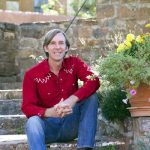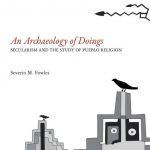“The Interpretation of Ancestral Pueblo Rock Art” with Severin Fowles
Tuesday, June 30 | 2:00 p.m. – 3:00 p.m. (MDT)
Humans have produced images for tens of thousands of years; indeed, image production is regarded as a universal undertaking, shared by all known societies. But cultural understandings of what images are—of how they work and of the powers they unleash—have varied widely through time and across social traditions. In this presentation, Fowles will consider a stunning revolution in image production that unfolded in the American Southwest after about 4,000 years ago, hand-in-hand with the spread of agriculture. As decades of research has demonstrated, farmers produced fundamentally different sorts of images than the hunter-gatherers who preceded them. Through an analysis of the rock art of northern New Mexico, Fowles seeks to clarify this difference, to define the ways in which it was revolutionary, and to offer a general account of the relationship between image production and agricultural production.

Severin Fowles
Severin Fowles was SAR’s 2014-2015 Weatherhead Resident Scholar.
This online event is free and open to the public.
We hope you will consider making a suggest donation at any level to help us continue to offer remote programs like this one. Watch the talk here.
Want to learn more about Fowles’ work? Learn more with SAR Press An Archaeology of Doing. In this probing study, Fowles challenges us to consider just what is at stake in archaeological reconstructions of an enchanted past. Focusing on the Ancestral Pueblo societies of the American Southwest, he provocatively argues that the Pueblos—prior to missionization—did not have a religion at all, but rather something else, something glossed in the indigenous vernacular as “doings.” Fowles then outlines a new archaeology of doings that takes us far beyond the familiar terrain of premodern religion.
